For 1990-2009 cars only
Tools Required
| • | KM-571-B Angular Torque Gage |
| • | KM-340-1-C Cutter Set |
Valve Grind-In
- Lubricate the valve seat using a fine-grained paste.
- Lift the valve rhythmically from the seat with a commercially available valve grinding tool in order to distribute the paste.
- Check the contact pattern on the valve head and in the cylinder head.
- Clean the valves, valve guides and the cylinder head.
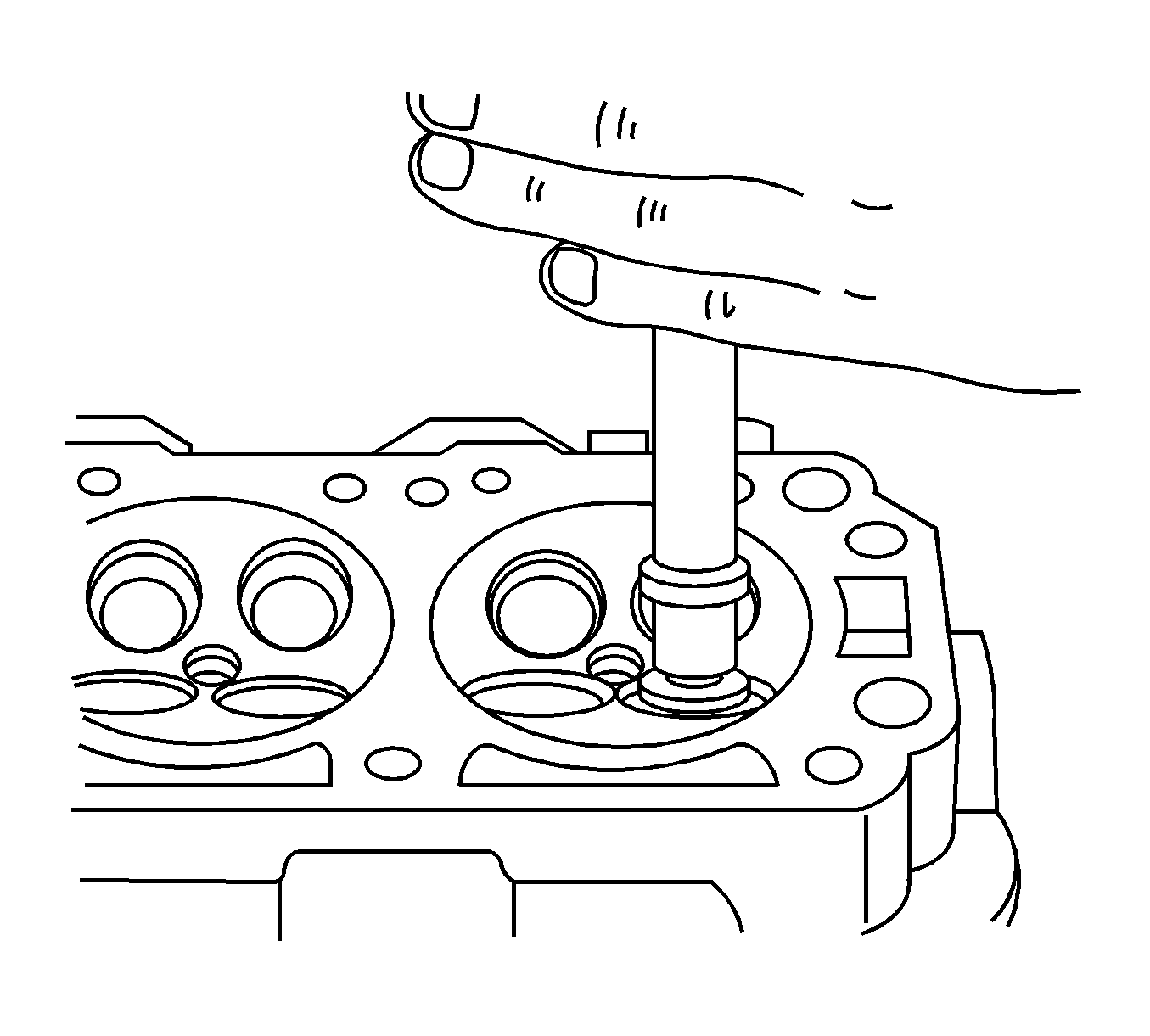
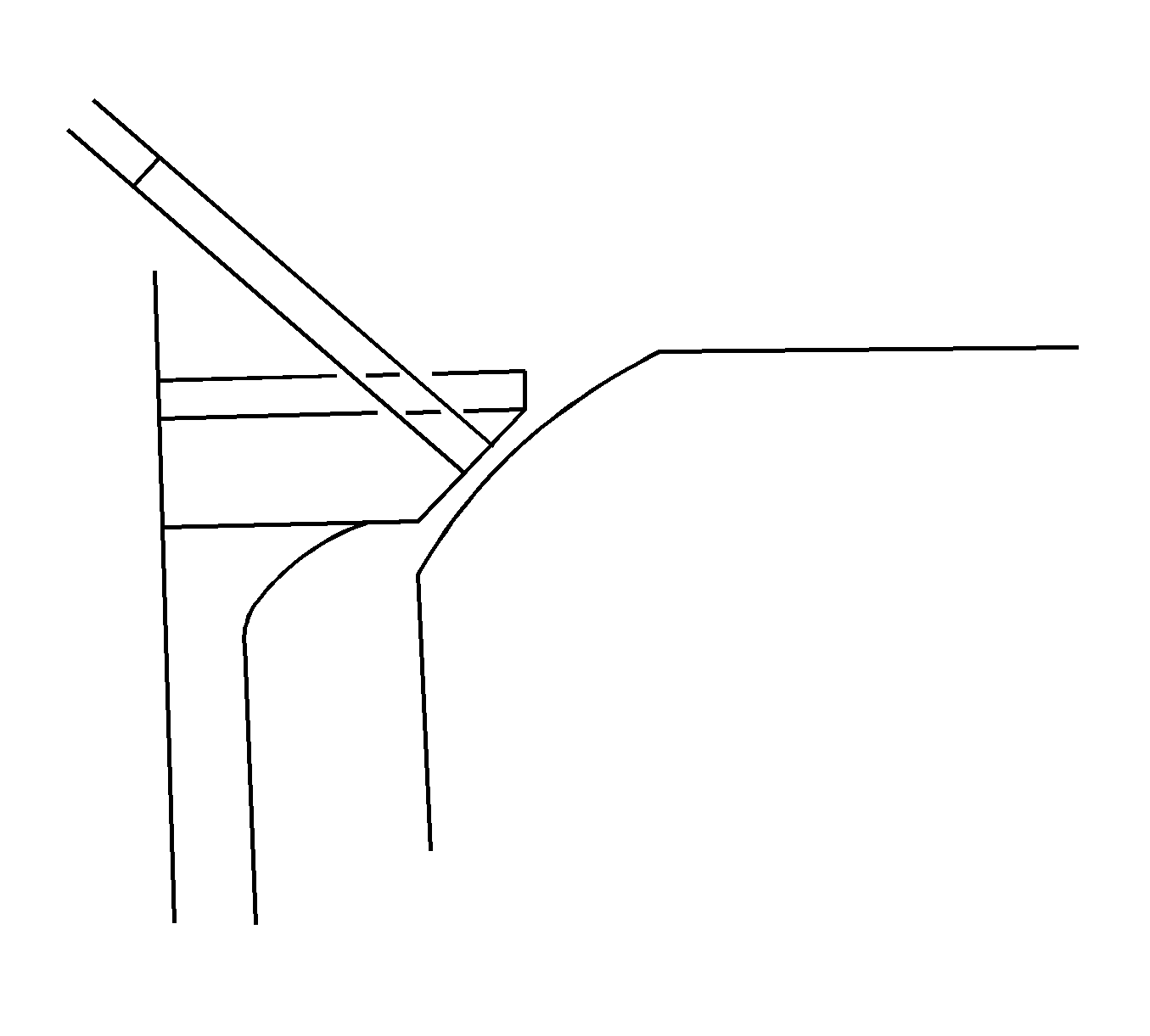
Valve Grind
- Ensure that there is no crater line burns on the valve cone.
- The valve may be reground only two times. Do not grind the valve stem end.
- Ensure that the angle at the valve face is 45 degrees.
- Inspect the assembly height of the intake valves and exhaust valves.
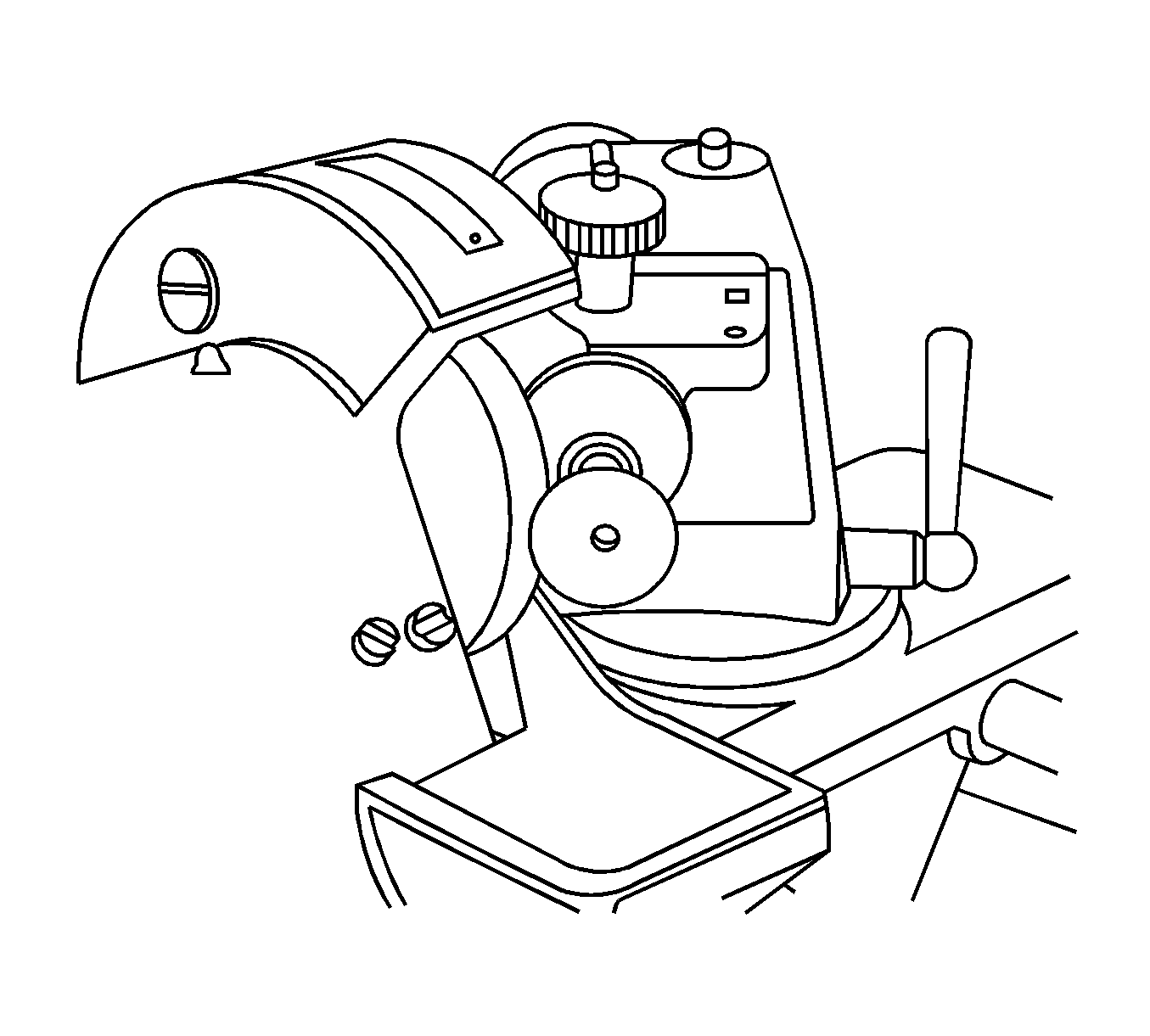
Valve Guide - Ream
- Measure the diameter of the valve guide using KM-571-B and a commercially available inside micrometer.
- An oversize service code is on the valve guide and the valve stem end. The following table gives the correct size, reamer and production code for each service.
- Ream the valve guide from the upper side of the cylinder head to the next oversize.
- After reaming, cross out the code and emboss the valve guide with the new code.
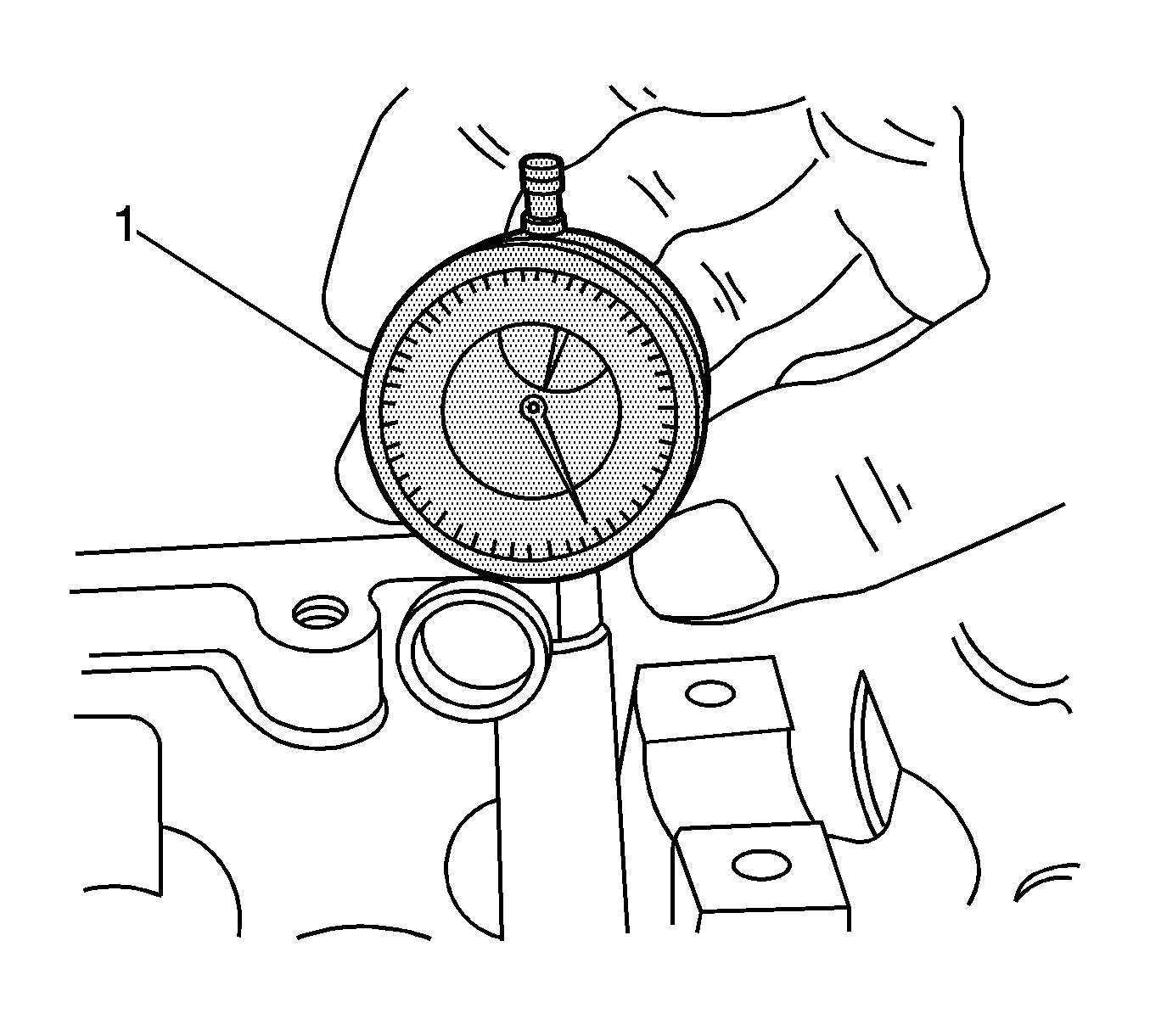
Important: Valve oversize may already have been fitted in production.
Size | Reamer | Production Code | Service Code |
|---|---|---|---|
Normal | -- | -- | K |
0.075 | KM-805 | 1 | K1 |
0.150 | -- | 2 | K2 |
Valve Seat - Cut
- Place the cylinder head on wooden blocks.
- Cut the intake and the exhaust valve seats using the guide drift KM-340-7 as follows :
- Clean the chippings from the cylinder head.
- Inspect the dimension for the valve seat width.
- Inspect the assembly height of the intake valves and the exhaust valves. If the dimension is exceeded, install new valves. Inspect the assembly height again. If the valve assembly height is still too large despite replacing the valves, replace the cylinder head.
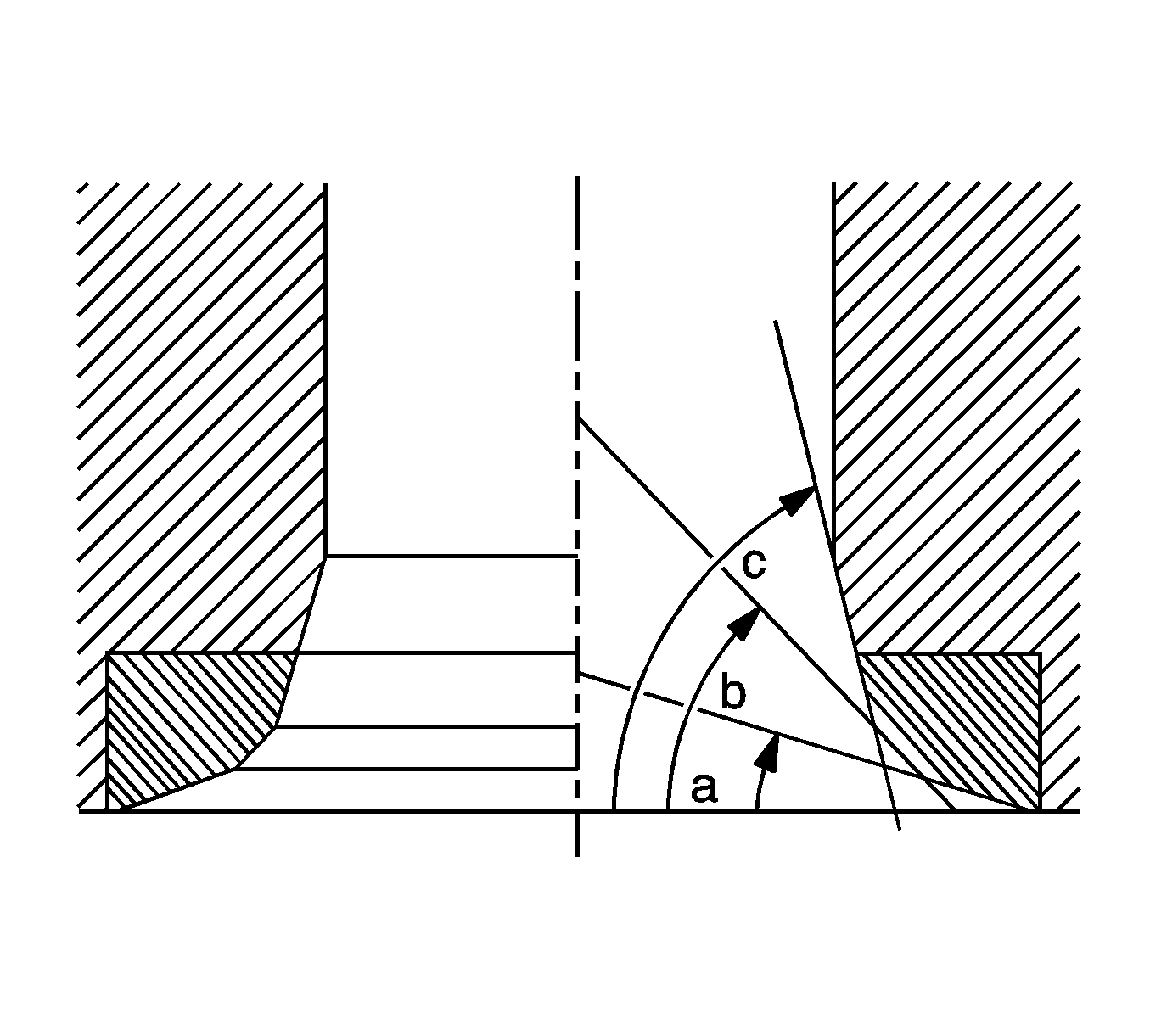
| • | Valve seat -- 45 degree surface using KM-340-13. |
| • | Upper correction angle -- 30 degree surface using KM-340-13. |
| • | Lower the correction angle -- 60 degree surface using KM-340-13. |
